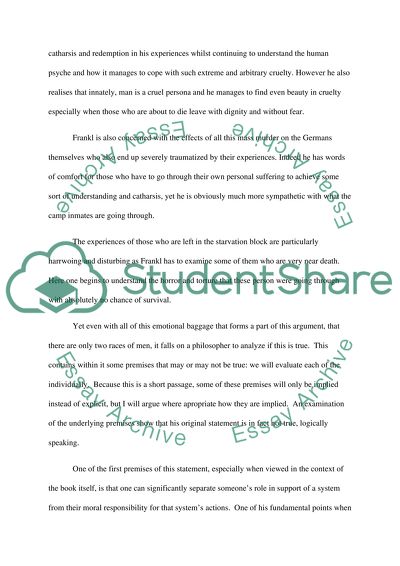Cite this document
(“Philosophy. Viktor Frankls Mans Search for Meaning, Platos Theory of Essay”, n.d.)
Retrieved from https://studentshare.org/philosophy/1398965-philosophy-viktor-frankls-mans-search-for-meaning-platos-theory-of-forms
Retrieved from https://studentshare.org/philosophy/1398965-philosophy-viktor-frankls-mans-search-for-meaning-platos-theory-of-forms
(Philosophy. Viktor Frankls Mans Search for Meaning, Platos Theory of Essay)
https://studentshare.org/philosophy/1398965-philosophy-viktor-frankls-mans-search-for-meaning-platos-theory-of-forms.
https://studentshare.org/philosophy/1398965-philosophy-viktor-frankls-mans-search-for-meaning-platos-theory-of-forms.
“Philosophy. Viktor Frankls Mans Search for Meaning, Platos Theory of Essay”, n.d. https://studentshare.org/philosophy/1398965-philosophy-viktor-frankls-mans-search-for-meaning-platos-theory-of-forms.


